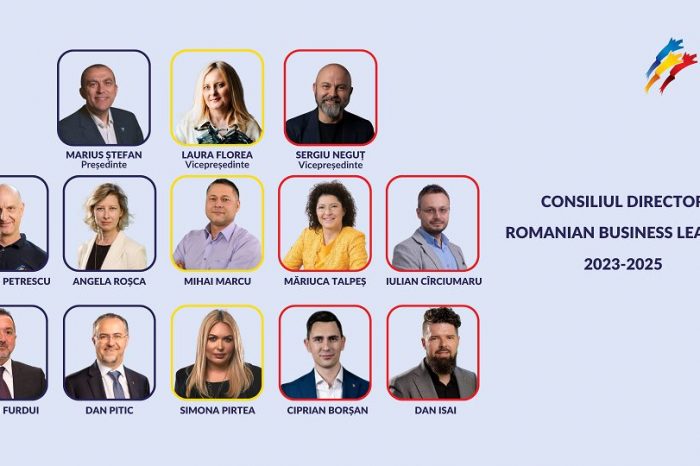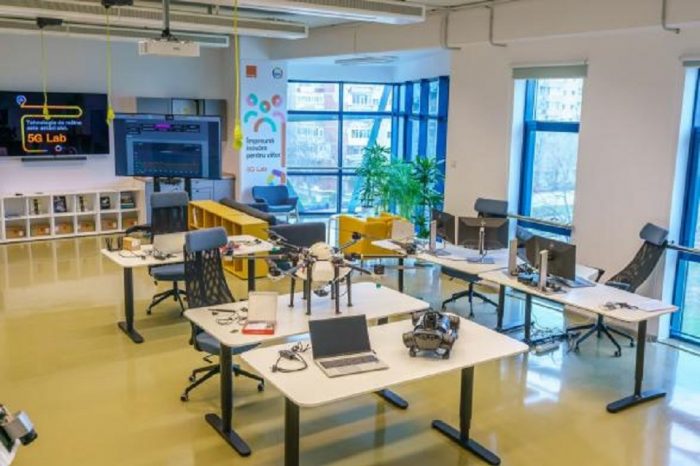ABSL: 55% of the employees in the business services industry will work between 8-12 days a month from the office after the pandemic

- 95% of companies from the industry will adopt a hybrid work model post-pandemic
- 56% of companies will make changes in their current offices and turn them into spaces dedicated to meetings and socializing
- 77% of companies have increased their employee’s salaries in the last year
- Vaccination will boost the development of the industry, but 83% of companies said they will not make it mandatory for those willing to return to the office
The Association of Business Services Leaders in Romania (ABSL) conducted a study in February-March on what are the characteristics of the 2021 new ways of working for the companies in our industry.
According to this study, over 90% of the participating companies said they have their employees working from home (or from other places). At this moment, 38% of the companies stated that only the technical support staff goes to the office, while the rest of the employees goes there only on special contexts (ex. meetings).
About 95% of the surveyed companies will approach a post-pandemic hybrid working system, coming to the office in different percentages. Only 5% of companies said they will work 100% from office.
40% of the companies from the business services industry plan to gradually return to the office, in hybrid system, from July – August, this percent will reach 61% by the end of 2021 or 2022. 39% of responding companies do not know yet when they will return to office.
In the first five criteria for returning to the office, companies mentioned are: the individual choice of employees, the type and the stage of project, the team’s decision and the employees’ performance.
45% of companies in the industry say that after the pandemic they intend to work from the office between 8-10 days a month, while 10% intend to come to the office 12 days a month. Employees from 22% of the companies surveyed will work from the office less than 7 days a month or only occasionally.
Regarding the offices, 61% of companies will keep the office spaces owned before the pandemic, while 39% of companies will reduce these spaces. 56% of companies intend to transform the office space. The role of the post-pandemic office will change. This will function mainly as a space dedicated to meetings, as stated by 86% of companies, but also as a space for interaction and team building, as claimed by 57% of companies. Dining spaces, relaxation areas, video and augmented reality experiences are other features of the post-pandemic office.
“The experience of the last months has shown that both teleworking and office work in a 100% proportion have inconveniences and do not correspond to the needs of the companies, for the long run.
Newly hired teams are more difficult to prepare when working from home, and medium and long-term professional development is negatively affected if the team does not interact directly for long periods of time” says Cătălin Iorgulescu, representative of the ABSL Board of Directors.
Almost two thirds (72%) of the companies in the business services industry did not introduce during the teleworking period different performance evaluation criteria. 78% of the surveyed ones use only one evaluation type recurrence.
However, 85% of the companies stated that they introduced new skills in evaluating the performance of managers, related to teleworking. These include the ability to manage teams working remotely, virtual leadership, flexibility, empathy, employee motivation.
72% of companies took various measures during this period in order to avoid burnout, such as mental health and wellbeing programs, 1-on-1 communication and flexible working hours.
Also, 40% of companies applied for tax facilities provided by the state. Free days for parents, financial aid for studies or amounts for the purchase of IT equipment are the main facilities for which these companies applied.
The companies continued to offer benefits to their employees during this period. 45% of companies offer on average 3 or 4 benefits. The most common are: medical subscriptions, stress management and psychotherapy programs, sports, programs for detecting and preventing diseases.
77% of companies in the industry have increased their employees’ salaries this year, while 13% have kept them in the same range as in 2020.

“This year the labour market will start recovering, and the decision of a company not to increase salaries could impact the team. One of Romania’s competitive advantages in the European business services industry is the low labour costs. The steady rise of wages will weaken this advantage over the next five years. For these reasons, repetitive activities will be replaced by robotic process automatization or they will go to cheaper locations, mainly in Asia. In this context, I believe it is essential for our industry to migrate from transactional services (such as invoicing, order processing) to high value-added services (such as data analysis, planning, improved customer experience, full development of an automation project, etc.).”, explains Ciprian Dan, President of ABSL.
Vaccination will make possible office interactions and business travel.
The significant reduction of mobility during the pandemic was an important obstacle in the development of the outsourcing industry. For new process migration specialists travel to learn essential knowledge, setting up systems and the framework in which the activity will take place.
However, 83% of companies said they will not make vaccination mandatory for those willing to return to the office.
The ABSL study was conducted between February and March 2021. The research involved 61 companies, employing approximately 39,000 people.
Revenues generated by the business services industry in 2020 are of 4.5 billion euros and will continue to grow in the medium and long term. The business services industry contributes with 2 – 2.5% to GDP, similar to industries such as wholesale, electricity or oil and natural gas in Romania.
About ABSL
The Association of Business Service Leaders in Romania is the most important organization representing the business services sector, gathering in its composition the most important companies in the market that carry out their activity in fields such as Shared Services Center (SSC), Business Process Outsourcing (BPO), Information Technology Outsourcing (ITO), Research and Development (R&D).
The role of ABSL Romania is to support the expansion of the Business Services sector and its transformation into an important vector of Romania’s economic growth. The association achieves its goals by facilitating the collaboration of key players, engaging authorities, and interest groups in developing key operational aspects of the industry.
ABSL Romania includes both local and multinational companies, regional and global leaders as well such as: ACCA, Accenture Services, AECOM, Allianz Worldwide Partners, APT Prohuman, Bosch Service Solutions, Be Think Solve Execute, British American Tobacco, Brightway, Carestream Dental, Cegeka Romania, Conduent, Connect44, Colt Technology Services, CWS Business Global Services, Datanet System Software, DB Schenker, DB Global Technologies, Deloitte Audit, Deutsche Telekom Services Europe, DXC Technology, Ernst & Young, Eucom Business Language, Euromaster Tyres & Services, EXL Service, Genpact, Global Remote Services, Goodyear Dunlop Tires Operations Romania, Hewlett Packard Enterprise, HP Inc. Romania, Huawei, Kellogg’s Global Business Services, KMG Rompetrol, InterGlobe Technologies, Luxoft Professional Romania, Linde Global Services, Majorel, Mercedes Benz, Microfocus, Microsoft Romania, Michelin Business Services, Molson Coors, Mood Media, Office Depot Service Center, OMV Petrom Global Solutions, Optima Solutions Services, PwC Romania, Process Solutions, Procter&Gamble Marketing Romania, Randstad, Renault Business Services, Rinf Tech, Samsung SSCE, SCC Services Romania, Selir, Sia Group, Societe Generale Global Solution Centre, Stefanini Romania, Suvoda Software, TDCX Romania, Teleperformance, TELUS International, Total Global Services, TotalSoft, UniCredit Services, Valoris Center, Veeam Software, Vertiv Romania, Visma Software, Vodafone Shared Services Romania, Waters Corporation, Webhelp, Wipro Technologies and WNS Global Services Romania.















